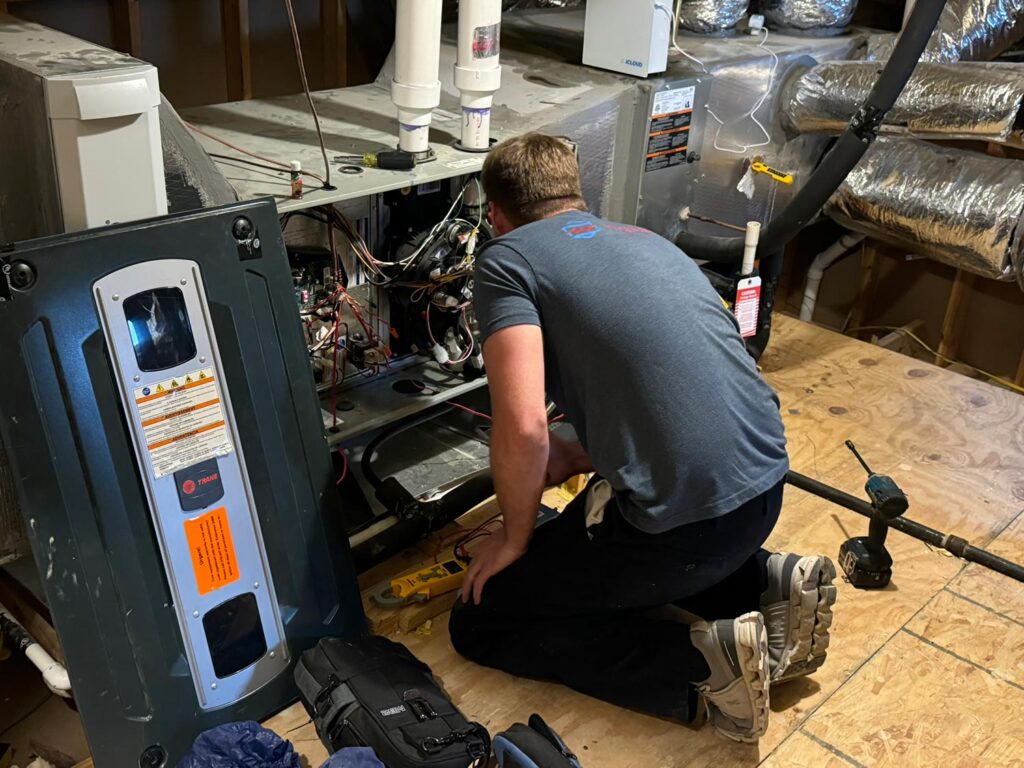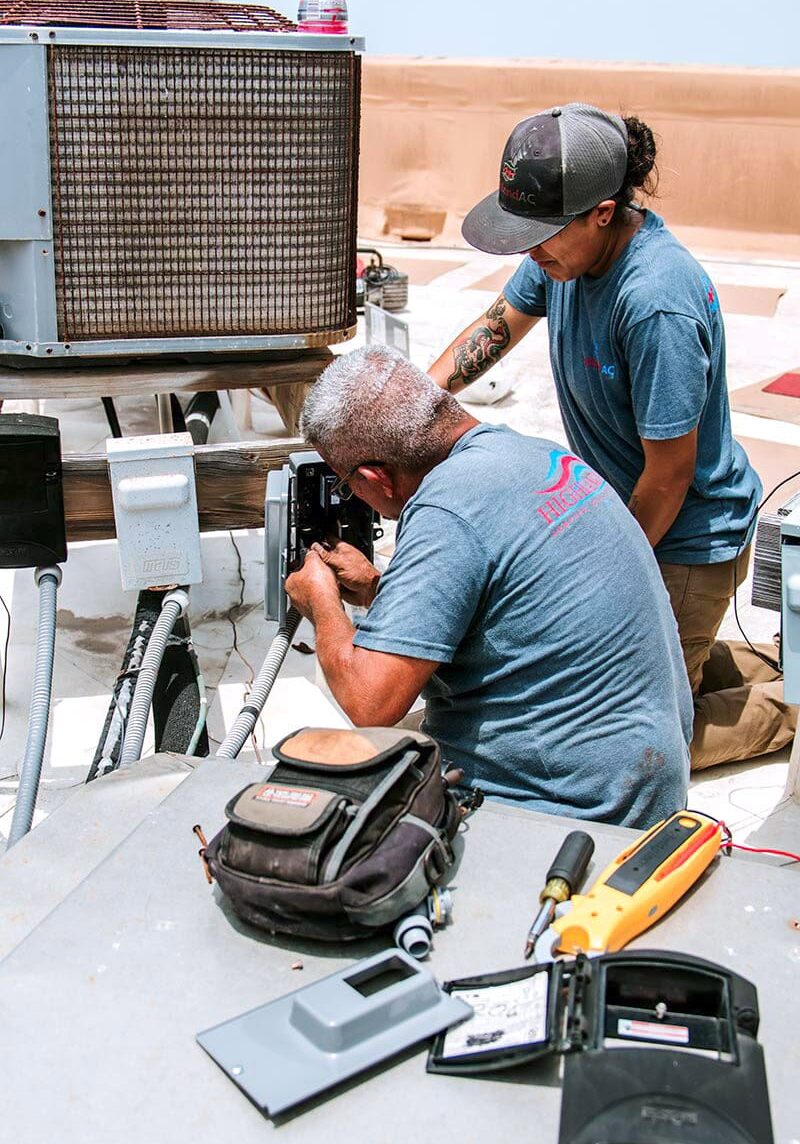Your HVAC system is one of the hardest-working parts of your home, keeping you cool during scorching summers and cozy when temperatures drop. But without regular care, it can become inefficient, unreliable, or even break down completely—often at the worst possible time. The good news? A little attention goes a long way. Here’s a breakdown of the best practices to keep your HVAC system running smoothly—and when to call in the professionals.
1. Change Air Filters Regularly
Frequency: Every 1 to 3 months
Your HVAC system’s air filter traps dust, pet hair, pollen, and other particles that would otherwise circulate through your home. When it’s clogged, airflow is restricted, causing your system to work harder and use more energy. This simple maintenance task is one of the easiest ways to protect your system.
Pro Tip: If you have pets, allergies, or live in a dusty area, you may need to change your filters more frequently.
2. Keep Vents and Registers Clean and Unblocked
Make sure your supply and return vents are free from dust and debris. Avoid placing furniture or rugs in front of them. Blocked vents not only limit air circulation but can also strain your system and lead to uneven heating or cooling.
Quick Check: Walk through your home every few weeks to ensure all vents are unobstructed and clean.
3. Check the Outdoor Unit
If you have a central air system, the outdoor condenser unit needs space and airflow to function properly. Clear away leaves, grass clippings, or debris, and trim nearby bushes or plants to ensure at least two feet of clearance around the unit.
Also: Make sure the unit is level—an uneven condenser can cause mechanical issues over time.
4. Monitor Your Thermostat Settings
Your thermostat plays a big role in energy efficiency. Setting it a few degrees higher in summer and lower in winter can reduce your energy bill without sacrificing comfort. A programmable or smart thermostat can make this even easier by adjusting temperatures while you’re asleep or away.
5. Listen for Unusual Noises
Grinding, rattling, buzzing, or whistling sounds can indicate a problem with your HVAC system. Don’t ignore them—unusual noises are often early signs of mechanical issues or parts starting to fail.
6. Schedule Professional Maintenance Twice a Year
While basic upkeep is essential, your HVAC system still needs professional attention. It’s recommended to schedule maintenance twice a year: once in the spring for cooling systems and once in the fall for heating.
A pro technician will:
- Clean coils and components
- Check refrigerant levels
- Inspect electrical connections
- Lubricate moving parts
- Test system safety and efficiency
These checkups not only prevent breakdowns but can also catch minor issues before they become expensive repairs.
7. Don’t Ignore Energy Bill Spikes
If your utility bill suddenly jumps without a change in usage, your HVAC system might be the culprit. A spike in energy use can mean your system is struggling due to dirty components, leaks, or failing parts. That’s your cue to call in a professional for diagnostics.
When to Call in the Pros
Even with solid maintenance habits, some issues require expert attention. Here are a few times to pick up the phone:
- No heat or cool air: If your system is running but not doing its job, a deeper issue may be at play.
- Strange smells: A burning, musty, or electrical smell could signal mold, overheating, or a wiring issue.
- Poor airflow: If some rooms are too hot or cold, it could be ductwork trouble or a malfunctioning blower.
- System is short-cycling: If your unit keeps turning on and off quickly, that’s often a sign of a malfunction.
- It’s been over a year since your last inspection: Routine professional service can prevent 90% of breakdowns.
Caring for your HVAC system isn’t complicated, but it does require consistency. By changing filters, keeping things clean, and paying attention to warning signs, you can keep your system running efficiently for years. And when in doubt, don’t hesitate to call the pros—they’re your best line of defense against unexpected (and expensive) repairs.
Think of HVAC maintenance as an investment in your home’s comfort, safety, and long-term value. A little time now can save you a lot of trouble later.

